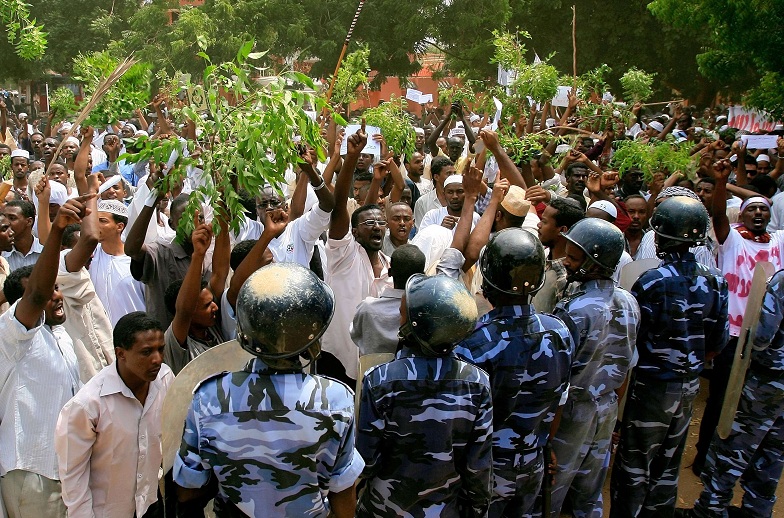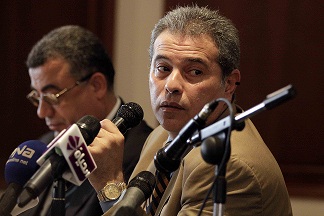BERLIN: Great speeches are all too often underestimated as being mere words. In fact, they can have powerful consequences. This is obviously the case with President Barack Obama’s recent address to the Muslim world in Cairo, because – mere coincidence or excellent timing? – things in the Middle East have been in flux ever since.
Since Obama’s Cairo speech, there have been elections in Lebanon where, surprisingly, the alliance of pro-Western parties scored a clear victory against Hezbollah and its allies. Also noteworthy in that election is that the losing side immediately accepted defeat and that Syria is now obviously serious about building a new rapport with Lebanon.
Iran’s recent “election saw blatant manipulation in favor of the incumbent president incite a democratic mass uprising. One is astonished by the fact that Iran’s government did not opt for transparency immediately, by promptly and comprehensively providing the facts about the voting, facts that it alone possesses. After all, if President Mahmoud Ahmadinejad has genuinely won by a margin of 2:1, there is nothing to fear. What is happening, however, is precisely the opposite, and for this there is only one explanation: the election was rigged.
The election fraud in Iran has caused a mass movement in the country’s cities, which – this much is clear even now – will fundamentally change the country. Indeed, either the regime will resort to brute force to suppress the protests, thus abandoning any pretense of democratic legitimacy in favor of de facto military dictatorship, or it will find it impossible to beat the subversive genie of democracy back into its bottle, and Iran will increasingly open up and reform itself.
In the case of violent suppression, the West will find it a lot harder to hold talks with Iran over its nuclear program, because the regime will be able to rely for its survival solely on isolation and confrontation with the outside world. Moreover, talks with the regime would give rise to substantial legitimacy problems in the West.
The Islamic Republic will not be able to get away with the Chinese option – to combine political suppression at home with economic reform and greater openness to the outside world – because its structures are too weak and brittle for this. The ruling ideology, moreover, is unlikely to survive such a step unharmed.
Indeed, aside from matters of domestic policy and the issue of internal freedom, the choice between the major candidates hinges on the question of whether Iran should seek greater international integration. Ahmadinejad stands for a policy of confrontation and partial isolation; Moussavi stands for more openness. A policy of opening the country would therefore quickly put the regime’s existence at risk.
If Ahmadinejad prevails, the dilemma for the West will be that it will have to deal with a regime discredited by election fraud, but still indispensable for resolving almost all of the Middle East’s important problems: Iran’s own nuclear program and the conflicts in Afghanistan, Pakistan, Iraq, Lebanon, and Palestine. Iran is also a key player in cooling the hot spots in the Caucasus and Central Asia.
A regime in Tehran that must demonstrate external strength to survive its shattered legitimacy at home would therefore make the comprehensive, negotiated settlement that the West seeks much more difficult and risky, if not impossible, to achieve.
Things have also started to move in a third area: the conflict between Israel and the Palestinians. Obama wants a two-state solution, but, unlike Presidents Bill Clinton and George W. Bush, he hasn’t postponed tackling the Israeli-Palestinian conflict until the end of his second term in office. Instead, Obama has energetically confronted the issue from the start. He also doesn’t shy away from a limited conflict with Israel’s government concerning the West Bank settlements.
The conditions for serious negotiations in the Israeli-Palestinian conflict, however, are anything but good, owing to a lack of partners on both sides. Prime Minister Benjamin Netanyahu has now committed himself to a Palestinian state, and the Hamas leadership, which rejects Israel’s right to exist, has agreed to a Palestinian state within the borders prior to June 5, 1967. But the provisos that each side would demand of the other put into question the sincerity of their commitment to a two-state solution.
Yet only a government of the Israeli right can end the expansion of the settlements, and only Hamas can stop the violence against Israel. These two questions – settlements and security – will have to be simultaneously resolved in a practical manner if the peace process is to be restarted.
If Obama wants to make serious progress in this conflict, he will have to get the Netanyahu government and Hamas to negotiate. This may seem impossible from today’s perspective, but appearances can deceive. Such negotiations will be possible if and when both sides – Israel and the Palestinians – form governments of national unity.
Today’s flux in the Middle East is a highly ambivalent affair, because the situation can improve or (more likely) deteriorate. But one thing is certain: if the present impasse continues, the situation will only get worse. So it is right to take the risks that change requires.
Joschka Fischer, a leading member of Germany’s Green Party for almost 20 years, was Germany’s Foreign Minister and Vice Chancellor from 1998 until 2005. This commentary is published by Daily News Egypt in collaboration with Project Syndicate/Institute of Human Sciences, (www.project-syndicate.org).

